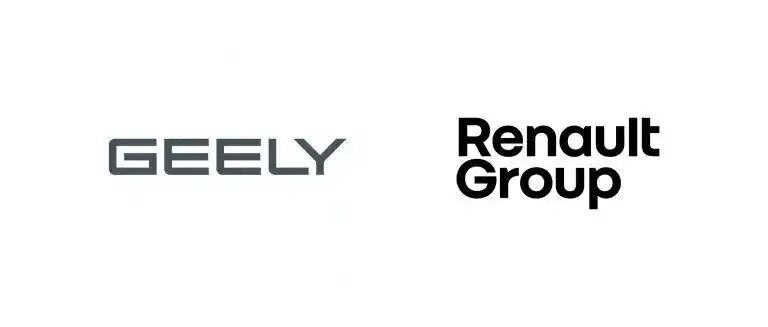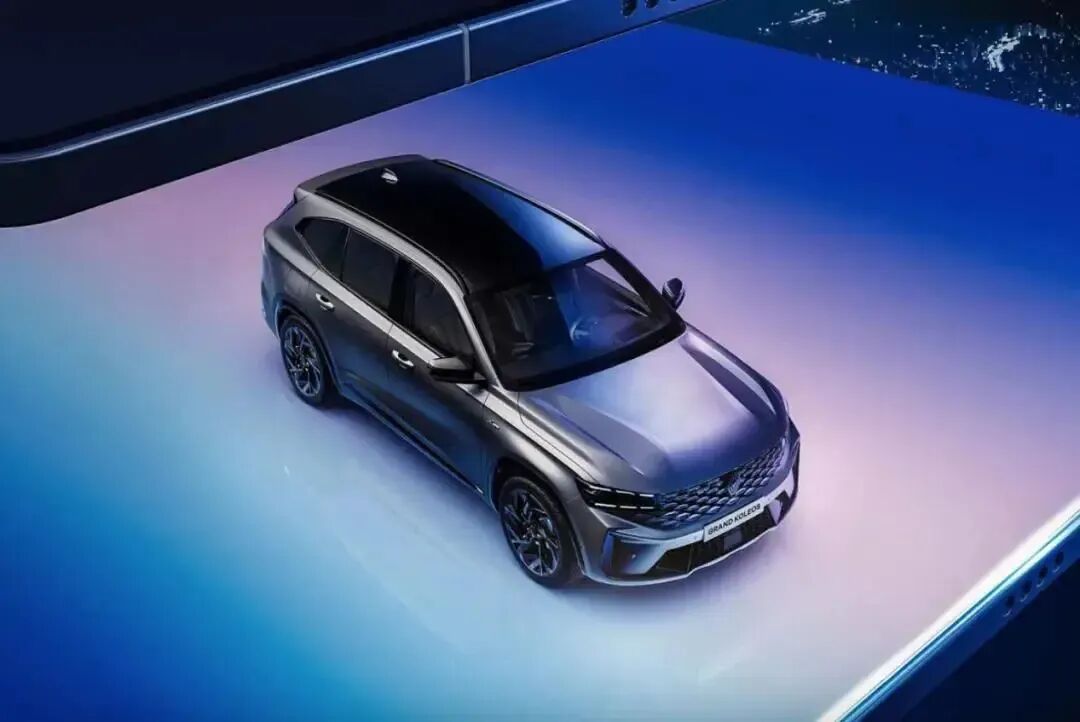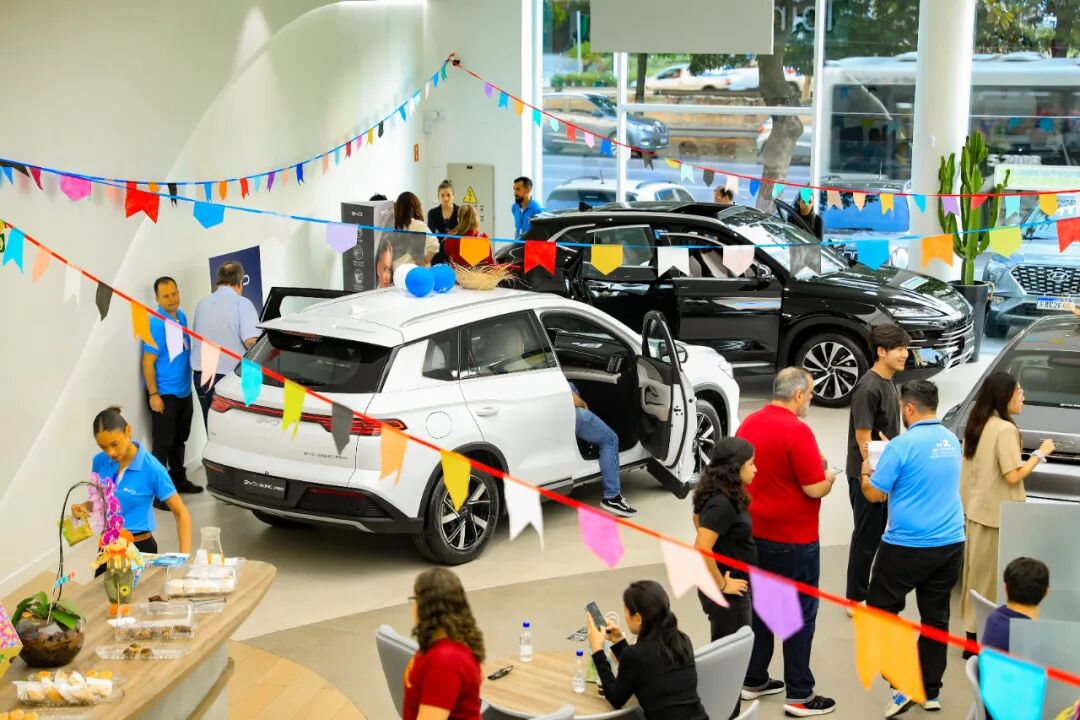Is Renault Turning into a "Contract Manufacturer" for Chinese Automakers? It Teams Up with Geely and Pursues Chery
![]() 11/05 2025
11/05 2025
![]() 465
465
At present, domestic independent automotive brands are flourishing in the Chinese market. However, it's becoming increasingly tough for them to achieve further sales growth. Consequently, many have set their eyes on Brazil, which remains an untapped blue ocean market.
Compared to the factory-based approaches of Great Wall and BYD in Brazil, Geely has opted for a shortcut by partnering with Renault. Renault has a long-established production and sales presence in Brazil, and now, it's gradually evolving into a "contract manufacturer" for Chinese brands in the Brazilian market.

On November 3rd, Geely Holding Group and Geely Automobile Holdings Limited officially inked a definitive strategic cooperation agreement with Renault Group for the Brazilian market. The two sides will deepen their strategic partnership, producing and selling new energy vehicle models from both Geely and Renault through Renault do Brasil.
After finalizing the cooperation with Geely, Fabrice Cambolive, Chief Growth Officer of Renault Group, revealed that Renault is in talks with Chery and other automakers to explore potential collaborations in vehicle production and sales.
Renault, Unable to Re-enter China, Willingly Serves Chinese Automakers
Those well-versed with Renault are aware that the company has exited the Chinese market for several years. This exit was primarily due to its products' inability to keep pace with market advancements, especially in electrification and intelligence—factors that have effectively cut off its ties with the Chinese market. Nevertheless, Renault is keen on tapping into the new energy technology and supply chain resources of Chinese automakers. Earlier, it established a dedicated China division to learn from Chinese new energy vehicle technologies and supply chain resources, laying a solid foundation for its overseas markets. However, a domestic market comeback seems unlikely.
According to the definitive agreement between Renault and Geely, Renault will divest a 26.4% stake in its Brazilian subsidiary to Geely. As part of this Brazilian deal, Geely will leverage Renault's factory in Sao Jose dos Pinhais, Paraná, to assemble Geely-branded vehicles and distribute them through Renault's sales network. Simultaneously, Renault will utilize Geely's vehicle architecture to venture into other market segments in Brazil.

Cambolive mentioned that the cooperation aims to boost factory utilization. The factory boasts an annual production capacity of around 400,000 units, with a current utilization rate hovering around 50%.
From this agreement, it's evident that Renault is trading equity stakes for technological cooperation with Geely, optimizing factory capacity, and leveraging Geely's vehicle architecture to expand its footprint in the Brazilian market. For Geely, this arrangement enables it to establish a comprehensive production and sales system in Brazil with minimal capital investment, facilitating swift market entry. The cooperation is mutually beneficial for both entities.
The partnership with Geely has also illuminated a new profitability avenue for Renault. Cambolive stated at a press conference, "This alliance is undeniably a successful cooperation as we're expanding the utilization of diverse platforms, industrial tools, engineering designs, and distribution networks."

Although Renault's factory is producing vehicles for other brands, it's at least generating revenue, keeping the factory operational, and allowing dealers to profit from vehicle sales—all hallmarks of win-win cooperation.
The executive didn't dismiss the possibility of striking other deals with manufacturers in different markets. He added that Chery is among the automakers Renault is in contact with, and both sides are exploring similar cooperative relationships, though no projects have been finalized yet.
However, Chery already operates its own factory in Brazil. If it opts to partner with Renault, it will weigh its product mix and return on investment. Cooperation with Renault could enable rapid production and accelerate product promotion. Given that Chinese automakers are intensifying their presence in the Brazilian market, Chery likely aspires to solidify its market position there, making a partnership with Renault a promising prospect.

Renault, with its weak technological foundation and reluctance to fully exit, hopes to capitalize on cooperation with Chinese brands to generate profits while expanding its market through technological collaboration. By partnering with companies like Geely and Chery, Renault can swiftly address its shortcomings and enhance the competitiveness of its products in specific markets. This is the primary reason why Renault is eager to collaborate with Chinese automakers.
Fierce Domestic Competition, Brazil Presents New Opportunities
Independent brands now reign supreme in the domestic Chinese market, with BYD selling 3,701,852 units from January to October; Chery Group selling 2,288,929 vehicles during the same period; Geely Automobile selling 2,477,300 units; Great Wall Motor selling 1,066,400 vehicles; and Changan's independent brands selling 2,016,793 units. These five brands collectively command nearly half of the Chinese automotive market, underscoring the intense competition.

Achieving growth in the fiercely competitive domestic market is indeed arduous, making it relatively easier to pursue growth overseas using Chinese new energy technologies.
Statistics reveal that last year, sales of pure electric vehicles, plug-in hybrid electric vehicles, and hybrid electric vehicles in Brazil exceeded 170,000 units, marking an 85% year-on-year increase.
With the escalating demand for electric and hybrid vehicles, the Brazilian market is being perceived by Chinese automakers as a new growth frontier.
In July this year, BYD held the inaugural vehicle roll-off ceremony at its passenger vehicle factory in Camaçari, Bahia, Brazil. In the first quarter of this year, BYD's sales in Brazil surpassed 20,000 units.
Additionally, Great Wall Motor's Brazilian factory officially commenced operations in August this year, while Leapmotor plans to initiate sales in Brazil in early November this year.
According to Xu Haidong, Deputy Chief Engineer of the China Association of Automobile Manufacturers, selecting suitable overseas target markets for "local production" is a crucial strategy for automakers' internationalization. From "producing domestically for global sales" to "producing globally for global sales," Chinese automakers are accelerating the global collaboration of their industrial and supply chains.
Renault's proactive "investment attraction" efforts in the Brazilian market also underscore the global advantages of Chinese new energy vehicles. In the future, we're likely to witness more instances of Chinese automotive brands engaging in reverse joint ventures and acquiring local factories, providing greater certainty for Chinese brands in the rapidly evolving global new energy vehicle market.








